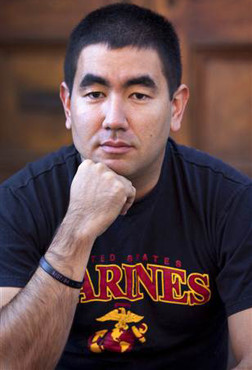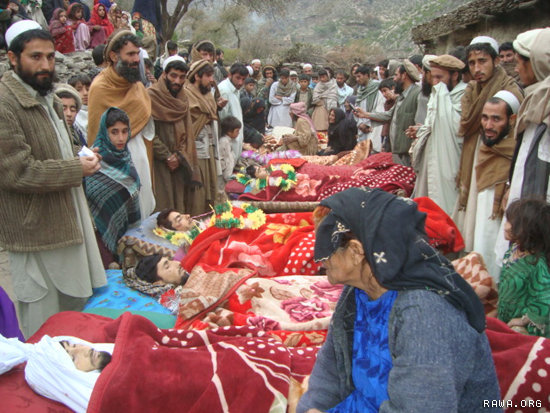By Timothy Kudo
Marine Capt. Timothy Kudo, a graduate student at New York University, deployed to Iraq in 2009 and to Afghanistan from 2010 to 2011. Follow him on Twitter: @tkudo.
When I joined the Marine Corps, I knew I would kill people. I was trained to do it in a number of ways, from pulling a trigger to ordering a bomb strike to beating someone to death with a rock. As I got closer to deploying to war in 2009, my lethal abilities were refined, but my ethical understanding of killing was not.
I held two seemingly contradictory beliefs: Killing is always wrong, but in war, it is necessary. How could something be both immoral and necessary?
I didn’t have time to resolve this question before deploying. And in the first few months, I fell right into killing without thinking twice. We were simply too busy to worry about the morality of what we were doing.
But one day in Afghanistan in 2010, my patrol got into a firefight and ended up killing two people on a motorcycle who we thought were about to attack us. They ignored or didn’t understand our warnings to stop, and according to the military’s “escalation of force” guidelines, we were authorized to shoot them in self-defense. Although we thought they were armed, they turned out to be civilians. One looked no older than 16.
It’s been more than two years since we killed those people on the motorcycle, and I think about them every day. Sometimes it’s when I’m reading the news or watching a movie, but most often it’s when I’m taking a shower or walking down my street in Brooklyn.

Marine Capt. Timothy Kudo wears a bracelet commemorating Staff Sgt. Javier Ortiz-Rivera, a platoon sergeant killed by a Taliban bomb in Afghanistan's Helmand province, while sitting outside his apartment in Brooklyn, New York. (Photo: John Minchillo/AP)
They are not the only deaths I carry with me. I also remember the first time a Marine several miles away asked me over the radio whether his unit could kill someone burying a bomb. The decision fell on me alone. I said yes. Those decisions became commonplace over my deployment. Even more frightening than the idea of what we were doing was how easy it became for me. I never shot someone, but I ordered bomb strikes and directed other people to shoot.
Many veterans are unable to reconcile such actions in war with the biblical commandment “Thou shalt not kill.” When they come home from an environment where killing is not only accepted but is a metric of success, the transition to one where killing is wrong can be incomprehensible.
This incongruity can have devastating effects. After more than 10 years of war, the military lost more active-duty members last year to suicide than to enemy fire. More worrisome, the Department of Veterans Affairs estimates that one in five Americans who commit suicide is a veteran, despite the fact that veterans make up just 13 percent of the population.
While I don’t know why individual veterans resort to suicide, I can say that the ethical damage of war may be worse than the physical injuries we sustain. To properly wage war, you have to recalibrate your moral compass. Once you return from the battlefield, it is difficult or impossible to repair it.
VA has started calling this problem “moral injury,” but that’s as deceptive a euphemism as “collateral damage.” This isn’t the kind of injury you recover from with rest, physical therapy and pain medication. War makes us killers. We must confront this horror directly if we’re to be honest about the true costs of war.
I didn’t return from Afghanistan as the same person. My personality is the same, or at least close enough, but I’m no longer the “good” person I once thought I was. There’s nothing that can change that; it’s impossible to forget what happened, and the only people who can forgive me are dead.
I will never know whether my actions in Afghanistan were right or wrong. On good days, I believe they were necessary. But instead, I want to believe that killing, even in war, is wrong.
America will participate in other wars in my lifetime. But if the decision to do so is a collective responsibility, then civilians need to have a better understanding of the consequences. The immorality of war is not a wound we can ignore — as is painfully obvious with so many veterans committing suicide.
Civilians can comprehend the casualties of war because most people know someone who has died. But few know someone who has killed. When I tell people I’m a Marine, the next question many ask is: “Did you kill anyone?” To my ears, this sounds like: “What’s the worst thing you’ve ever done?” They don’t realize they’re asking about an intensely private matter.
Many veterans I know are incensed by this question. It reinforces the isolation they feel in a society that doesn’t seem to care about Iraq or Afghanistan. But to me, it speaks to the fact that civilians’ curiosity about war overwhelms their understanding of it. Most Americans have little idea what war means. Our battles are fought with volunteers, making an intimate knowledge of war voluntary as well — and therefore avoidable.
Veterans are the only ones who can explain the ethical impact of war. For me, this means being open and honest about the deaths I caused and how they have changed me.
The question “Did you kill anyone?” isn’t easy to answer — and it’s certainly not one every veteran wants to. But when civilians ask, I think I have a duty to respond.
And if explaining what I did 6,000 miles away in a conflict far from the public’s consciousness makes the next war less likely, then maybe my actions weren’t in vain.

December 27, 2009: People of Narang district mourning for the civilians killed. A preliminary United Nations investigation found that eight students were among 10 Afghan civilians killed in Kunar in attacks by international military forces. This year many civilians were killed in the foreign forces' attacks as well. (Photo: RAWA)
More photos



